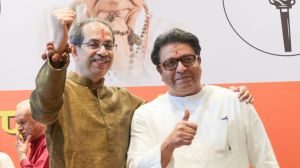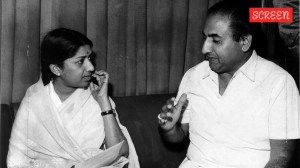Remembering great judges
ChaglaThe recent release of the postage stamp of M C Chagla was a fitting tribute to one of the greatest Chief Justices of independent India...

Chagla
The recent release of the postage stamp of M C Chagla was a fitting tribute to one of the greatest Chief Justices of independent India. Chagla8217;s greatness stemmed not merely from his erudition and ability, but essentially from his sturdy independence and an unfailing sense of justice, which his very presence on the Bench exuded. Lawyers and litigants had immense confidence in 8216;Chagla8217;s Court8217;.
Chagla had a humane approach. Workers and tenants could not hope for a more sympathetic judge. At the same time, employers and landlords were not denied a fair innings. Chagla8217;s signal contribution was his encouragement of junior lawyers. Late Nani Palkhivala and former Chief Justice Chandrachud were the major beneficiaries.
Chagla8217;s ready sense of humour was often reflected in the twinkle in his eyes. At one time, the prevailing legal wisdom, now discarded, was that if an order passed by an authority was an administrative order and was not judicial or quasi-judicial, no prior hearing was required to be given to the affected party. A A Oomar, a religious-minded lawyer with a flowing beard, cited before Chagla a passage from an ancient English case which stated that even Almighty God gave a hearing to Adam before expelling him from the garden of Eden. Chagla enquired whether God was acting in a quasi-judicial or administrative capacity. The humour was lost on the lawyer. He sought an adjournment to do research on this aspect. Chagla quipped: Let us leave God and Adam and Eve alone and get on with the case.
Chagla8217;s memoirs, Roses in December, are a veritable delight and reveal his multi-faceted personality: Lawyer, judge, diplomat, central cabinet minister in Nehru8217;s government, a man of letters, and a fearless upholder of freedom. He was at his best during the spurious June 1975 Emergency. Jayapaprakash Narayan paid him a well-deserved tribute. 8216;8216;Chagla8217;s crowning glory came during the Emergency, which stirred the innermost recesses of his heart, and he became a beacon8212;rallying point8212;of the forces struggling to restore our freedom and democracy.8217;8217;
During the time we relaxed at my hill-station bungalow at Mahabaleshwar, we talked about politics, law, life and literature and discussed Graham Greene8217;s books. He wholeheartedly endorsed Greene8217;s recipe for good life in old age: 8216;8216;Good cheese, good wine and good sleep.8217;8217; The spacious Central Court of the Bombay High Court which witnessed the stamp release function was packed to capacity, which was an unmistakable evidence of the abiding affection for Chagla long after his passing away in 1981.
Tulzapurkar
Of all the qualities a judge is conventionally expected to possess, courage should be the foremost. Justice V D Tulzapurkar, who passed away last week, possessed that virtue in abundance. Short in stature but tall in courage, he was the intrepid citizen8217;s judge, especially during the 1975 Emergency, when many a judicial soul turned timorous.
Tulzapurkar was a staunch upholder of freedom of the press. He struck down the arbitrary censorship orders imposed on the Marathi publication Sadhna. He gave much-needed judicial relief to The Indian Express, which was relentlessly targeted at that time by the government. In a speech delivered in Nagpur in January 1977 during the Emergency, he castigated the censoring authorities for prohibiting publication in newspapers of judgements which were adverse to the government and the Censor. In the same speech, he minced no words in criticising his friend, then law minister H R Gokhale, for his derisive remarks about the entire judiciary and the veiled threat given to it during the discussion in Parliament of the Constitution 44th Amendment Bill. The commissioner of police, Bombay, prohibited a public meeting to discuss the question of civil liberties and the rule of law under the Constitution which was to be addressed by former Supreme Court and Bombay High Court judges. The Bombay High Court struck down the ban.
Tulzapurkar8217;s concurring judgement was one of his finest. In thundering tones, he declared: 8216;8216;Even during the emergencies, it is legitimate for any citizen to say that these emergencies are being kept alive for suppressing democratic dissent and criticism and that these should be ended; it is legitimate for any citizen to say that the Presidential Order dated 27th June 1975, which in its blanket form purports to take away the remedy by way of habeas corpus to challenge his detention even if it is made mala fide, be revoked.8217;8217; Tulzapurkar was fearless and did not care for the consequences. His short but sharp dissent in the first judge8217;s case in the Supreme Court displayed his sturdy judicial independence.
These great judges should serve as role models and need to be remembered. It is a shame that the press did not notice the stamp release function nor Justice Tulzapurkar8217;s passing away. Perhaps these events were neither sensational nor sexy for the press.
- 01
- 02
- 03
- 04
- 05































